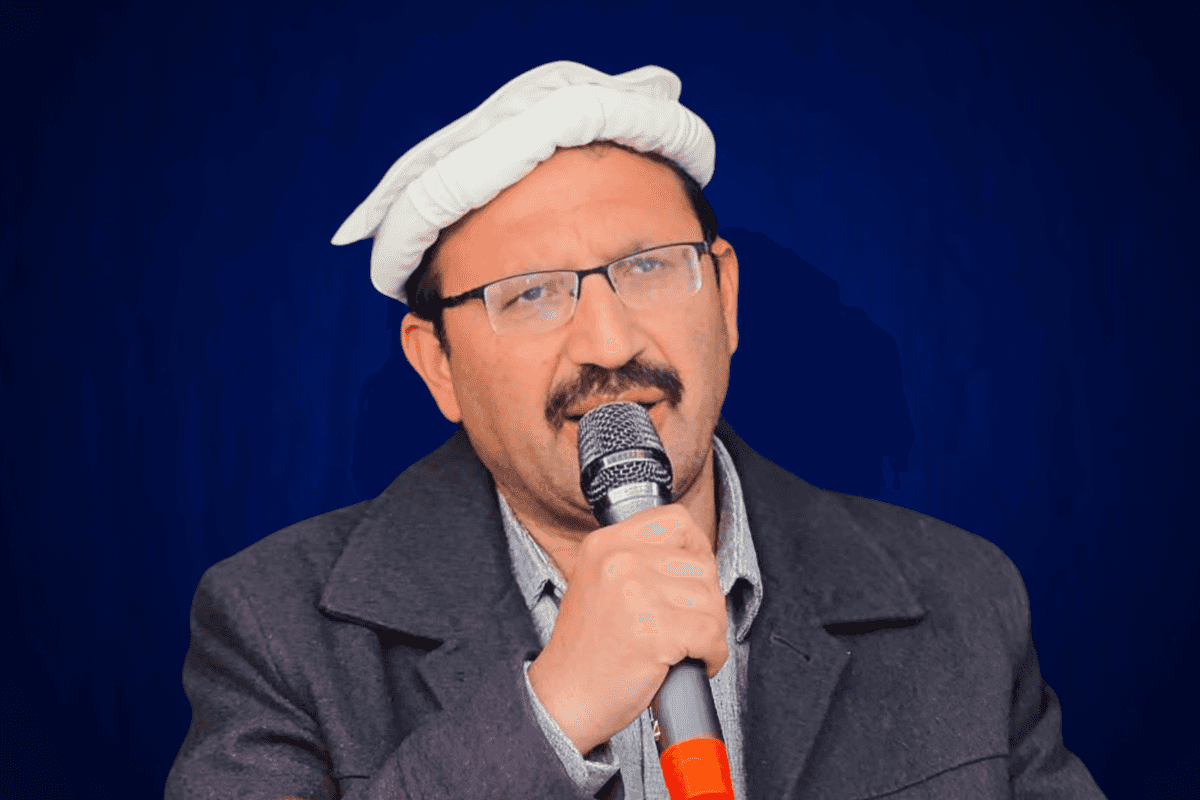Opposition takes control of Pakistan's finance watchdog committee after year-long standoff
Newcomer to financial oversight, PTI's Junaid Akbar wins crucial role after 11-year legislative career
News Desk
The News Desk provides timely and factual coverage of national and international events, with an emphasis on accuracy and clarity.

Junaid Akbar of the Pakistan Tehreek-e-Insaf party (PTI), elected unopposed as chairman of Pakistan's powerful Public Accounts Committee.
Junaid Akbar Khan / Facebook
Committee has power to summon prime minister over financial irregularities
Government broke tradition by requesting panel of nominees instead of direct opposition pick
Position vacant since February 2024 elections, leaving spending oversight in limbo
Pakistan's parliament elected an opposition lawmaker Friday to head its powerful financial watchdog committee, ending months of political deadlock over the coveted position that oversees government spending.
Junaid Akbar of the Pakistan Tehreek-e-Insaf party (PTI) was elected unopposed as chairman of the Public Accounts Committee. The committee plays a crucial role in scrutinizing government expenditures and can summon top officials, including the prime minister, to address financial irregularities.
The election took place without participation from two major political parties -- the Pakistan People's Party and the Muttahida Qaumi Movement.
Akbar's election came after extensive negotiations between the ruling Pakistan Muslim League-Nawaz (PML-N) and the opposition PTI. The government had insisted on receiving a panel of nominees, a departure from previous practice that the opposition claimed caused unnecessary delays.
Blame game
"The delay in committee election was due to the government," said PTI Chief Whip Amir Dogar, noting that in previous transitions, opposition leaders were given direct nomination power. "They told [Prime Minister] Shehbaz Sharif he could nominate whoever he wanted, but this government has started the tradition of requesting panels."
The ruling party defended its approach. "It was the government's decision to give PAC chairmanship to the opposition," said Dr. Tariq Fazal Chaudhry, adding that the government had to send three formal requests before receiving the opposition's nominations.
Looking ahead
Akbar, who brings 11 years of parliamentary experience but is new to financial oversight, acknowledged the challenges ahead. "I don't have experience with PAC," he said after his election, "but I will try to fulfill my responsibilities in the best way possible with fellow members."
The committee had remained without a chairman since Pakistan's general elections in February 2024, hindering parliamentary oversight of public spending during a crucial period for the country's economy.
‘Cornerstone of parliamentary oversight’
According to historical records, Pakistan's Public Accounts Committee has been a cornerstone of parliamentary oversight since the country's first legislative assembly. The tradition of appointing an opposition member as PAC chairman began in 2008 following the Charter of Democracy. The committee, comprising 29 members from both houses of Parliament, plays a crucial role in examining government expenditures and financial irregularities.
The most recent PAC, under PTI's Noor Alam Khan during the Pakistan Democratic Movement (PDM) government, was particularly active, holding a record 618 meetings between May 2022 and August 2023. The committee had remained without a chairman since Pakistan's February 2024 elections, marking one of the longest periods of vacancy in its recent history.
Who’s Junaid Akbar?
A three-term parliamentarian from Malakand, Khyber Pakhtunkhwa, Junaid Akbar brings over a decade of legislative experience to his new role. First elected in 2013, he secured consecutive victories in the 2018 and 2024 elections, cementing his position as a consistent presence in the National Assembly. Known for his loyalty to PTI, Akbar also served as a focal person to KP Chief Minister Gandapur, a role that ended due to internal party dynamics.
His election came after an extensive nomination process, where he was one of five candidates proposed by PTI, alongside Omar Ayub, Amir Dogar, Khwaja Shiraz, and Sheikh Waqas Akram. This followed earlier proposals that had included various other PTI figures, including Sher Afzal Marwat and Sahibzada Hamid Raza of the PTI-backed Sunni Ittehad Council.






Comments
See what people are discussing